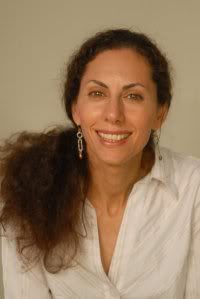Audrey Galex: Lofty goals are often lived out through small acts of doing what is right

by Audrey Galex, President of the Board for Faith Alliance of Metro Atlanta and Program Content Manager at the AIB Network.
“To understand other people, even your enemy, you must be willing to walk a mile in their moccasins.”
It was Labor Day weekend, 1971. I was 12-years-old. I was standing on the pulpit at the Tri-City Jewish Center in Rock Island, Illinois, becoming a Bat Mitzvah, taking on the obligations of a Jewish adult in the traditional, religious coming of age ceremony. And those were the words I shared, as part of a reflection on the portion of sacred scripture that accompanied that week’s observance of Sabbath. They are words that continue to guide me.
By the time I was 12, I knew how it felt to be “other.” I was the only Jewish child in my kindergarten class at the Villa de Chantel, a private Catholic School. I was one of four Jewish children in the public elementary school, once I transferred to Denkmann Elementary in second grade. My younger sister Harriet was one of them.
And I knew how it felt not only to be ‘other” but to be shamed for it: In sixth grade, when I was 11, I was ridiculed for being and “looking” Jewish: my big nose, my frizzy hair and my olive skin. No one would sit with me in the lunch room or on the school bus. It was, I learned later, a rite of passage, a hazing to be endured, to be accepted into the “cool clique.”
That seemingly trite experience left an impression on me: It was a week that changed how I thought about “otherness,” and I vowed I would never look down on anyone, ever, for being different from me.
Yet what left an even bigger impression was the small act of courage of the one friend who stood by me and stuck up for me.
Monica and I met when she was four and I was three. I spent every Christmas with her, eating Norwegian lefsa bread. She spent every Hanukkah with me, eating latkes. I went to Vacation Bible Camp with her at the neighborhood Lutheran church. She attended Junior Congregation with me on Saturday morning at the synagogue. We went to Brownies and Girl Scouts together. Our moms were the troop leaders. She ate Sabbath dinner with me on Friday nights at my grandma Sugie’s house. I even think she liked chopped liver better than I did.
No one had to teach us about respecting each other’s faith traditions: We simply lived it. We walked in each other’s moccasins.
And when the chips were down, she was her sister’s keeper.
The Atlanta Interfaith Manifesto calls us to take dramatic action. Its charge is set out in simple, straightforward and eloquent language. Its outlined principles speak to the best and highest aspirations in human consciousness.
Yet I am reminded of how lofty goals are often lived out through small acts of doing what is right, risking ostracism, or worse. I think of Monica who stood up to bullying. I think of a woman who sat down on a bus. I think of a man who walked across a bridge.
I also think of the Atlanta women who have met regularly for more than a decade as an interfaith sisterhood. I think of the hundreds of men and women who have traveled together as World Pilgrims. I think of the Muslim and Jewish women who have baked together in an interfaith baking circle. I think of the university professor and his children who acted out Nasruddin Hodja stories at a recent “Winter’s Light” interfaith storytelling gathering. I think of the warmth and camaraderie in the room at the recent annual meeting of the Faith Alliance of Metro Atlanta. I think of the Atlanta mother who has just recently gathered dozens of people to stand in loving solidarity outside Atlanta mosque’s during Friday jumaa prayers.
And despite the fear, hatred and violence that’s become all too common, these individual acts are reminders of hope. They illustrate how Atlanta continues to serve as a beacon – one made up of individual candles – of people willing to reach across differences of faith, of their “otherness,” to learn from and with each other about how to get along.
Taken together, they advance the larger quest for interfaith understanding and cooperation.
And they challenge us to find ways, small and grand, day in and day out, to do what my friend Monica did, and walk in another’s moccasins, even if no one will sit next to you on the bus.
Audrey Galex has just begun her second year as president of the board of Faith Alliance of Metro Atlanta. She is Program Content Manager at the AIB Network. She and her husband Dave Schechter have three children: Maayan, Eyal and Ronen. They belong to Congregation Bet Haverim, a Reconstructionist synagogue in Atlanta.
